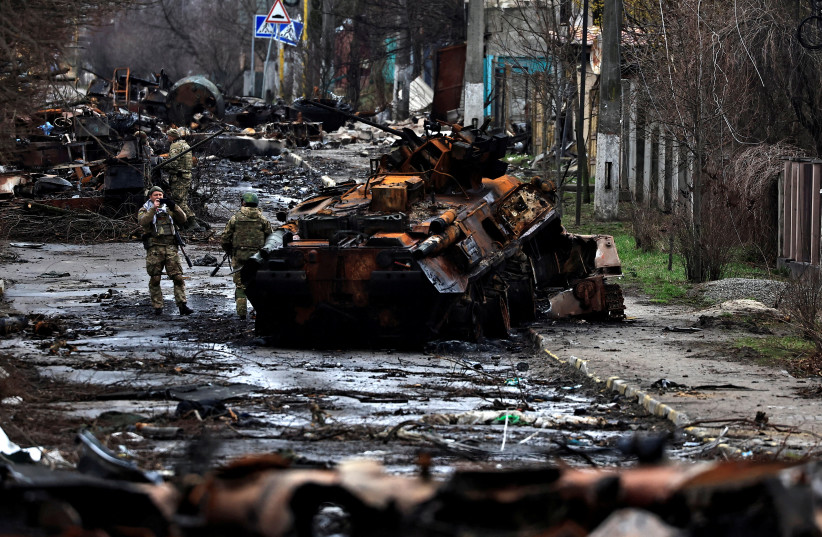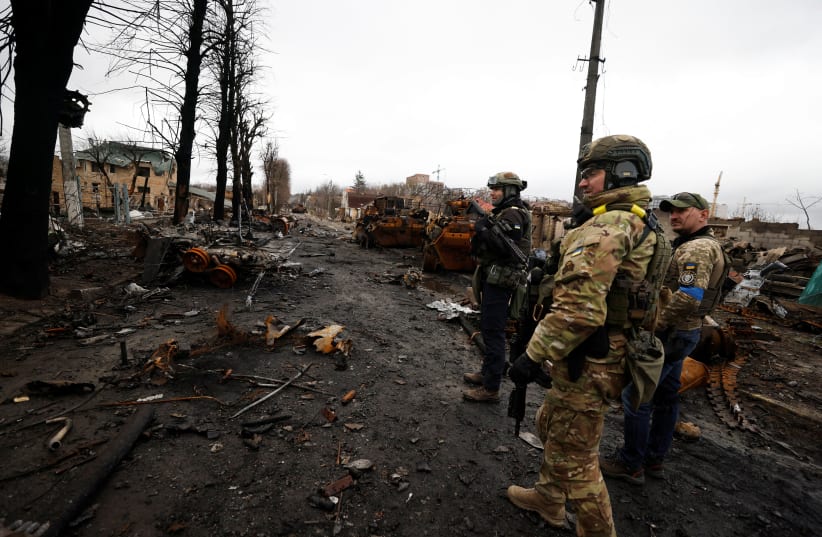Mounting evidence of Russia’s war crimes in Ukraine has not caused shock among the critics of the West’s backing of Ukraine. An alliance of some on the far-Right and far-Left in Western intellectual circles continues to push back on what they see as mass media “globalist” backing of Ukraine and “warmongering” by the US and Europe to back the besieged county's resistance against Russia’s unprovoked invasion.
It’s not clear what unites this band of critics. Some are “anti-imperialists” who always side with enemies of the West. Others are part of the crowd that backed the Assad regime and claimed his use of chemical weapons was actually “false flag” propaganda.
Others claim to merely be against “neo-cons” and claim to be “realists” who think the US has no real interests in backing Ukraine. For them Russia has “legitimate” concerns about Ukraine and the US should let Moscow have Kyiv under its sphere of influence. Then there are others who think Ukraine is “corrupt” and claim that its “Azov” military unit is an example of how it is “fascist.”
The long list of these reasons for opposing the West’s support of Ukraine is now coming up against massive evidence of Russian war crimes in areas the Russian army withdrew from around Kyiv. The videos are graphic and horrid, and the stories being told by survivors paint a picture of Russian forces committing sexual assaults and shooting civilians. Videos show bodies in places like Bucha near Kyiv. There doesn’t seem to be any attempt to hide these abuses; the bodies were left outside of houses.
This means that Moscow felt it had impunity. It also knows it has friends in the West who are already pushing conspiracies about these incidents. Some Americans who call themselves “conservative” have even spread “truther” types of articles claiming the bombing of the Mariupol theatre might be a “false claim.”


The new alliance of the far-Left and far-Right regarding Ukraine is creating strange bedfellows. Iran's backers and those who argued that it should have a nuclear weapon, are now hanging out with those on the far-Right who used to dislike the Islamic Republic. People who excuse China’s abuses are now hanging out with those who used to be against Beijing.
The overall issue is that a cavalcade of voices have come together to oppose more Western involvement in Ukraine. They make comparisons to the 2003 US war in Iraq and appear to claim that Washington would be involved in “regime change” if it backed the besieged country. This is an odd twist to the reality, in which Ukraine is the victim of the Russian regime-change war that is aimed at Kyiv.
It is unclear if the new revelations of horrid human rights abuses will change any minds among this alliance of critics. They claim that support for Ukraine or outrage over the abuses is “emotional” and that what is needed is restraint and “realism.” Realism appears to be a theory that embraces authoritarian regimes and adversaries of the US under a concept that they can all be reasoned with so long as they get everything they want and their “interests” are protected.
In this view, the US shouldn’t have any ideology, such as backing democracy, and America has no real allies, only interests. It’s not clear what those interests are when one backs an isolationist foreign policy.
Overall though, the implications are clear. For critics of the US backing Ukraine, it is only a matter of time before they also increase their calls for the US to end support for Israel. Under the banner of not wanting to “escalate” in the Middle East, they will turn against the Jewish state and embrace Iran’s regime and its “interests.”
The emergence of the new “realists” and their isolationism, bridging political gaps between far-Left and far-Right, is a new Western phenomenon. It will have ramifications as we continue to see evidence of what Moscow’s war in Ukraine has wrought.
